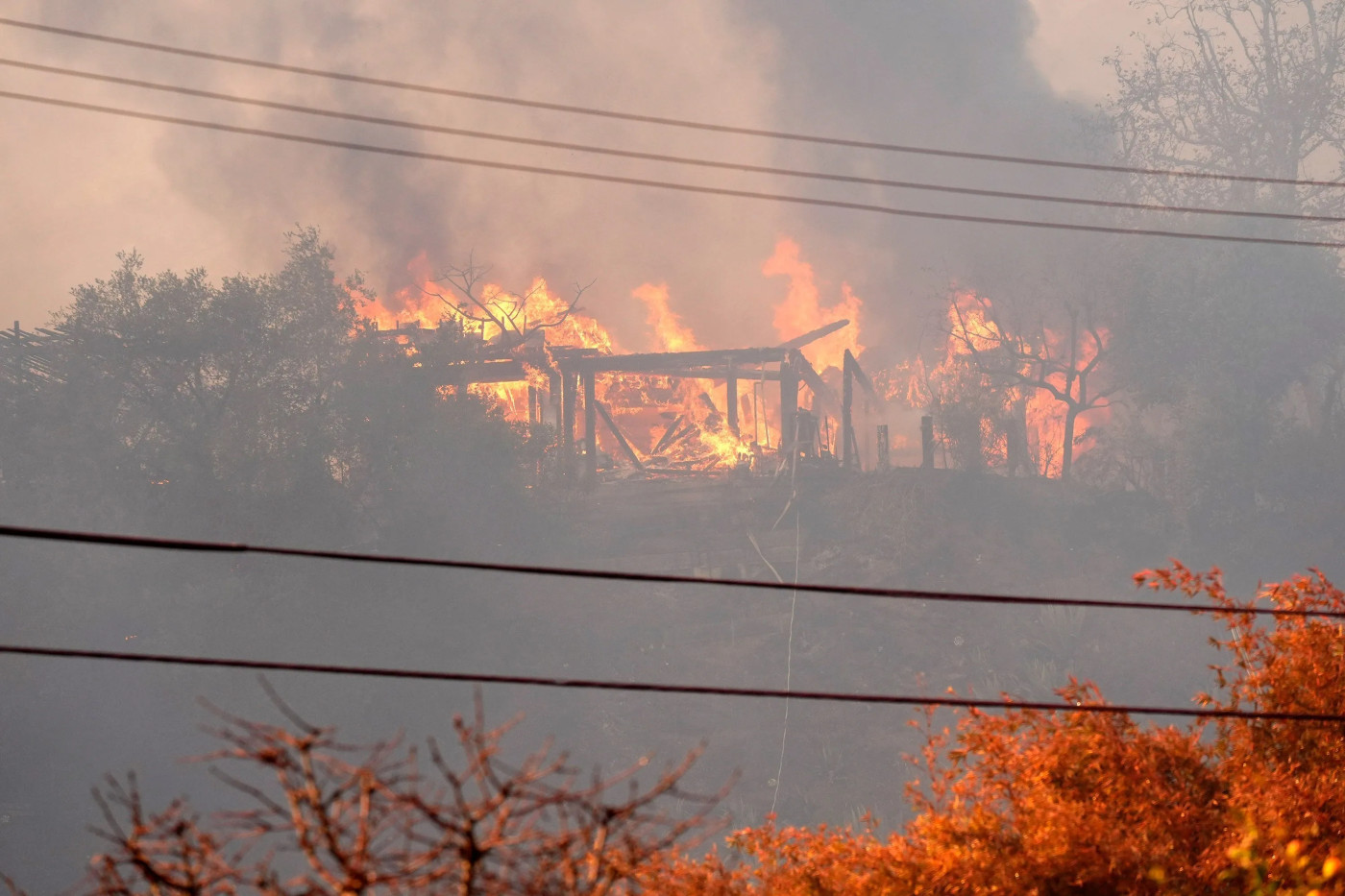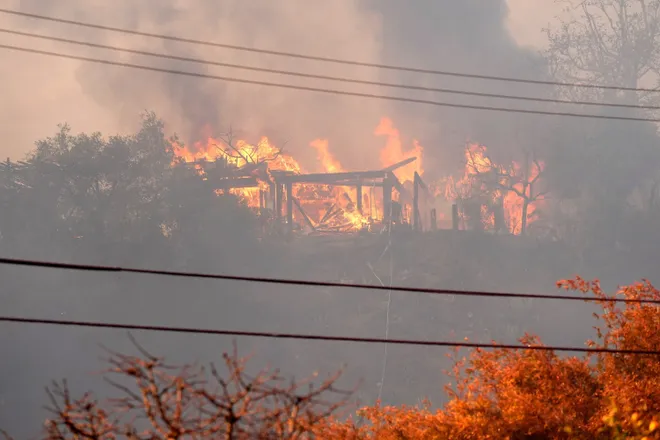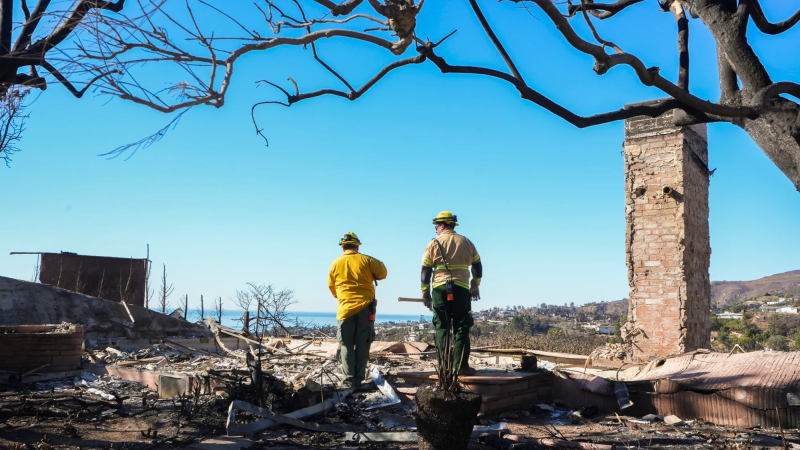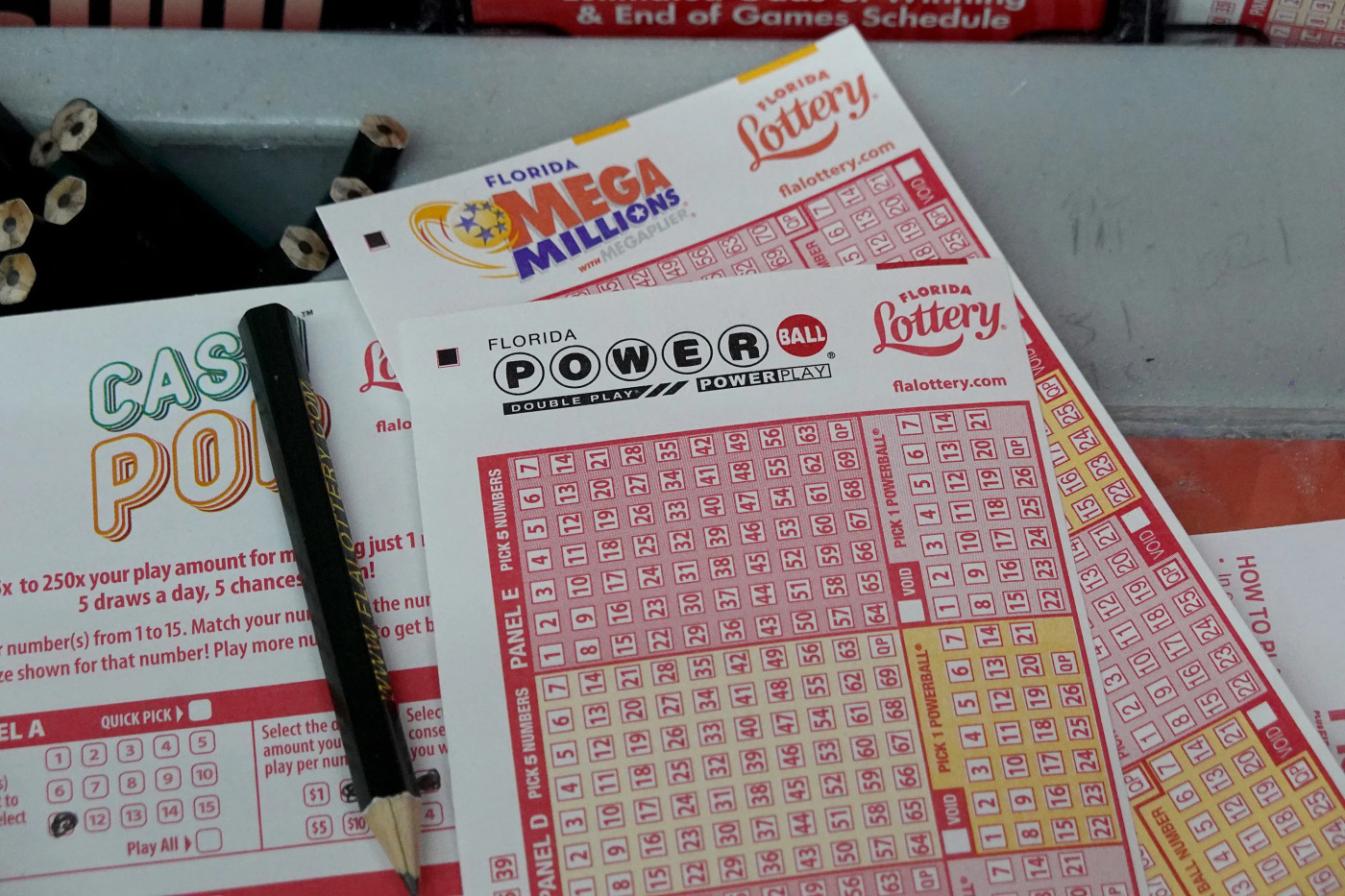
Price gouging after disasters like the LA fires is illegal. But it's happening anyway.
With tens of thousands of homes destroyed by fire and many communities completely inaccessible, housing is rapidly becoming one of the most critical issues facing residents of greater Los Angeles.
In the aftermath of the fires, "what we see is some people taking this as an opportunity to make additional money," said Natalie Maxwell, managing attorney at the National Housing Law Project (NHLP). "That is not unique to this disaster. We see that over and over again.”
So it’s important that anyone currently renting a home or out trying to find someplace to live knows their rights. It is absolutely illegal to gouge housing prices in the aftermath of a disaster, full stop. Here’s what that means and what California residents need to know.

The LA fires are officially a disaster
In general, a “disaster” is a situation that has been declared so by the governor, the president, or even a local official. The "Los Angeles County Fires and Windstorm Event" qualify. The State of California maintains a list of areas designated as disasters, where price gouging is currently illegal. In California, Penal Code 396 is the statute that makes price gouging illegal.
What is price gouging?
“Gouging” is defined as raising the rent --- or price of other goods and services --- more than 10% from the last marketed price. If you’re a current tenant, you know what your rent is, but someone looking for new housing may have a harder time figuring that out, said Lila Gitesatani, a staff attorney with NHLP.
“Really exorbitant” rental amounts may be a red flag, she said, or you might be able to do some basic research to see if you can find the last price the home was rented for, or what other comparable properties are listed for.
What can you do if you discover price gouging?
You can report it to the attorney general’s office, Gitesatani said. Local legal advocates might also be able to help. Local areas may have even stricter rules against price gouging, or tougher protections for tenants and consumers, than what's established by the state. Neighborhood Legal Services of Los Angeles County is one entity you might contact; Legal Aid Foundation of Los Angeles is another.
More:The 'MacGyver Housing Market?' Americans cobble together solutions to find a home
Is this a good time for an eviction moratorium?
Penal Code 396 specifically prohibits evicting tenants in order to offer the property to someone else at a higher price, but legislators might want to consider even stronger protections against evictions, Maxwell said.
In the aftermath of a disaster, things are so unsettled that pausing evictions “gives folks an opportunity to figure out what the next step is," she said. "It's an important legal protection to just kind of maintain the status quo so that government and community resources have a chance to come in, assess the situation, provide assistance to folks, and to reduce the likelihood that people who are currently housed are forced into the already overtaxed housing market that's resulting from the destruction of people's homes.”
That's particularly important considering that many LA-area residents may experience lost income for some time to come.


